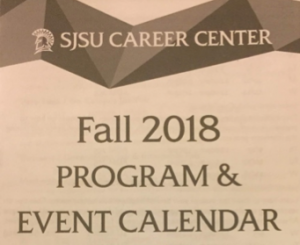I was one of those people who lucked out and had an internship turn into a paid job. An awesome paid job at the special-est of special libraries. It started out entry level, and then I was promoted to library assistant within two months. I worked there through my last year at SLIS, and then spent another five months dawdling over applying to actual librarian jobs because I was enjoying myself so much. I had co-workers I clicked with, darling patrons of all ages, and I got to do a little bit of everything – cataloging, reference, information literacy instruction, etc.
The economy was bad. It had been bad for a few years. We knew our organization was feeling a little financial pressure. There was an open position in our department which would remain unfilled, and we were told there were likely to be more cuts coming. It didn’t register that those cuts might include my position. About a month later, the director called in the middle of the day and asked me to come to one of the conference rooms.
With shaking legs I sat down across from her and a person from HR. They told me it was my last day. Getting laid off was heart breaking for me. I felt like I did when my first serious boyfriend broke up with me. But I’m not writing this for sympathy. I’ve done my grieving and am moving on. However, it is possible that this will happen to you. You might be sitting on my side of the table, or across from me. Given our financial climate, and the status of libraries in America, it is increasingly likely that you will be in this situation. I want you to know what I went through so that if the time comes you will have some context, and so that you can make choices which may reduce the likelihood of occurrence, or at least the negative impact on your life.
I want you to know what I went through so that if the time comes you will have some context, and so that you can make choices which may reduce the likelihood of occurrence, or at least the negative impact on your life.
The meeting was brief. After they told me it was my last day, the HR person slid across a check that looked startlingly large (at least relative to my usual checks). She also gave me a severance agreement, a pamphlet about their outplacement assistance program, and a pamphlet about unemployment that the California Employment Development Department requires all employers distribute at an employee’s termination*. I was thankful that she told me not to sign the severance agreement right away, but instead to go home and make sure it was acceptable. I don’t know what I would have done if they’d wanted me to sign it right away: I was not in any condition to make decisions. They told me I was welcome to head back to my department and say my good-byes. I spent very little time there, as I just wanted to go home and have a good cry.
I can imagine a lot of reasons why I was chosen to be laid off. I was one of the newer and least senior members of the staff. The organization was also in the process of re-envisioning my library. In tough times, a business will try to discover what it deems non-essential, and eliminate that spending. Consequently, they decided to curtail new accessions and eliminate circulation. This reduced the need for tasks which figured prominently in my job description (although less so in my duties): copy-cataloging and circulation.
My takeaways from this experience are both practical and theoretical. It drove home the importance of keeping an up-to-date resume and a wide net of professional contacts. It also reminded me that employees need to keep their own records at home and check paychecks carefully. Mistakes happen, and you will not always have a later moment to rectify them. The employee and employer need to be on the same page about job duties. And this needs to be recorded in the job description, particularly with larger companies.
I believe more strongly than ever that it is every librarian’s responsibility to advocate for libraries.
Speaking more abstractly, I believe more strongly than ever that it is every librarian’s responsibility to advocate for libraries. This includes making sure that every institutional stakeholder understands how the library benefits the organization. The benefits need to be described explicitly, and should relate personally to the individual. If no one but librarians understands the importance of libraries, it is no surprise that libraries will diminish in value.
In the end I am not sure there is anything that I could have personally done to stop this from happening, and I don’t place blame on my organization for making the decision to lay me off. One of my favorite questions to ask in an interview is “what is the biggest challenge facing your organization today?” However, I grow weary of the ubiquitous answer: lack of staff. Libraries everywhere have downsized. The economy will rebound eventually; our challenge will be to ensure that libraries are not left behind.
*In the US, employees who are laid off are generally eligible for unemployment benefits in the form of monetary compensation. In California, these are administered by the Employment Development Department (EDD).
__
Emily graduated from SLIS in May 2011 and was laid off five months later, in October. She currently works part-time as a research assistant on the project “Engaging a New Generation of Library Users: Exploring a Multi-Library Collaborative Model to Deliver Text Reference Service” and of course also spends time job hunting. To demystify the hiring process, Emily interviews hiring managers on her blog, Hiring Librarians.


Thanks for sharing your experience and reflections, Emily.